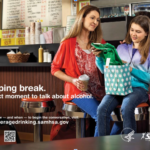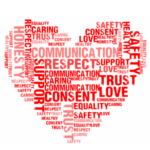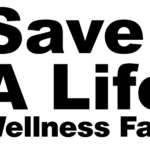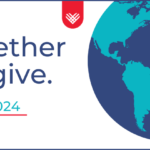Alcohol – the easiest drug for our kids to obtain. Friends, older brothers and sisters, and – unfortunately – some parents will buy it for their teens. After all, “it’s a right of passage” … “I drank, and I’m okay” … “my parents served it to us”.
But here are the facts... the earlier a child starts to drink, the more likely that heavy alcohol use will stay with him or her for the rest of their lives. The younger a child is when they take their first drink, the higher the chance that they will become an alcoholic.
- If your child begins drinking before the age of 15, they have a 40% chance of becoming an alcoholic.
- If they start before 17, the chances drop to 24.5%.
- And if they wait until they’re 21, the legal drinking age, the chances drop to 10%.
Add to that these facts... alcohol and other drug use can impair judgment, which can result in inappropriate sexual behavior, sexually transmitted diseases (including HIV/AIDS), injuries and car crashes. Habitual use can lead to an inability to control drinking, blackouts and memory loss, cirrhosis of the liver, vitamin deficiencies, damage to heart and central nervous system, weight gain, sexual impotence, and may also interfere with personal relationships.
The Legal Drinking Age is 21: Why That’s a Good Idea According to the American Medical Association
- Adolescent drinkers scored worse than non-drinkers on vocabulary, general information, memory, memory retrieval and at least three other tests
- Verbal and nonverbal information recall was most heavily affected, with a 10 percent performance decrease in alcohol drinkers
- Adolescent drinkers perform worse in school, are more likely to fall behind and have an increased risk of social problems, depression, suicidal thoughts and violence
- Alcohol affects the sleep cycle, resulting in impaired learning and memory as well as disrupted release of hormones necessary for growth and maturation
- Alcohol use increases risk of stroke among young drinkers
Visit the Virtual Save A Life Wellness Fair for more resources!
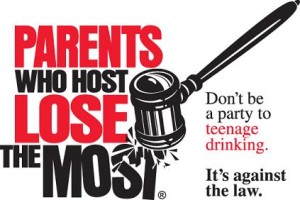
Some parents have rationalized that if they allow underage drinking parties at their residences they can at least exert some supervision over their children and their friends. Learn about the social host laws in New York!
Related Posts
April at ASK
April is Alcohol Awareness Month Why Small Conversations Make a Big Impression (SAMHSA) Talking to your child at an early age about drinking is the first step toward keeping them alcohol-free. But as they enter junior high and high school, the pressure to try alcohol increases. It’s important to continue the conversation throughout adolescence. Talking often […]
February at ASK
Teen Dating Violence Awareness Month February is National Teen Dating Violence Awareness and Prevention Month. This is an issue that impacts everyone – not just teens – but their parents, teachers, friends and communities as well. Together, we can raise the nation’s awareness about teen dating violence and promote safe, healthy relationships. How Do I Get Help? […]
January at ASK
We know that you had many options when it came to your end-of-year giving. Why not choose local and give to the Alliance for Safe Kids with your beginning-of-year giving? A gift to ASK is also a gift to Drug Crisis in Our Backyard and it would be amazing to kick off 2025 with your support […]
December at ASK
During this season of giving, think about the best and most thoughtful gift you may give to yourself and those you care about. Being well informed and knowing where to find potentially lifesaving information and resources should be at the top of that list. ASK is proud to introduce the virtual Save A Life Wellness Fair which […]
November at ASK
Start A Conversation: 10 Questions Teens Ask About Drugs and Health From the National Institute on Drug Abuse (NIDA) NIDA’s goal is to help people get accurate, science-based information about drugs and health. To help you start a conversation about drugs and health with your teen, they have compiled teens’ most frequently asked questions from more […]

